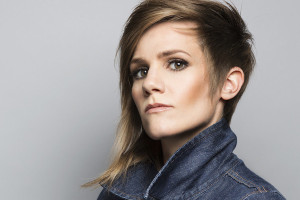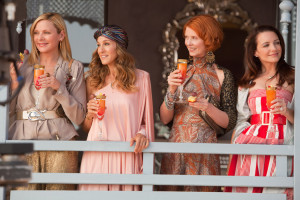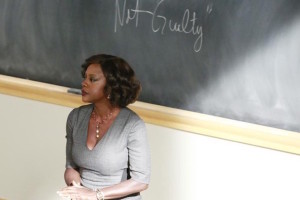Carley Jennings Explains Why “Management Is All About Relationships”
When Carley Jennings started out in the music industry, artist management wasn’t where she planned on ending up.
 But at 29, just two years after her daughter was born, the opportunity to co-manage a successful band presented itself. With six years spent climbing the music industry ladder, Jennings seized the management opportunity and hasn’t looked back since. A year later, she now runs Dead Room Living – her own boutique artist management company. The Los Angeles-based business has a steadily growing clientele list, and Jennings is certain that she’s found her professional niche.
But at 29, just two years after her daughter was born, the opportunity to co-manage a successful band presented itself. With six years spent climbing the music industry ladder, Jennings seized the management opportunity and hasn’t looked back since. A year later, she now runs Dead Room Living – her own boutique artist management company. The Los Angeles-based business has a steadily growing clientele list, and Jennings is certain that she’s found her professional niche.
The music industry up-and-comer took some time to talk with SharpHeels about Dead Room Living, starting her own company before 30, and doing it all with a family in tow.
Tell me a bit more about Dead Room Living and artist management in general?
Well we’re a boutique artist management company, and I basically serve as a manager for bands and musicians whose careers are ready for the next step. I help them to navigate the sometimes-murky waters of label deals, booking agents, business managers, and so on.
Sometimes the artist finds me; sometimes I seek out the artist. It’s always a case-by-case basis and I take that mentality into the projects. No two bands are the same; no two career trajectories are the same. Management is all about relationships, so I work with different people every day and meet new people all the time: different labels, booking agents, producers, directors, engineers, the list goes on.
What artists do you work with?
Currently, my roster includes Brian Marquis, Sam Outlaw, and Wayfarer. There’s also my newest project, Olin & The Moon.
What inspired you to start Dead Room Living?
In 2013, when I agreed to co-manage a band with my friend, it was with the understanding that I’d be able to do it on my terms. By the time that project had run its course, I had come to the realization that artist management was where I wanted to be. Not to mention, I was already beginning to build an artist roster of my own. So – rather than taking my artists to another management company and convincing someone else that we were worth their time and a salary – I decided to move forward on my terms. Which meant starting my own company.
What’s a typical day in your life like?
Dead Room Living is still in its infancy, so I operate completely out of my “mobile office,” also known as my laptop, smartphone, and anything else I can stuff into my tote bag. Since I’m not someone who can be productive in a work-from-home setting, I pack up my bag every morning, drop my daughter off at school, and head to my favorite Wi-Fi-equipped coffee shop. From there I send my emails, schedule meetings, and make my calls. In reality, no two days are the same. Sometimes I’m driving to the valley to sit in on a studio session, other days I am meeting with another manager clear across the city.
Besides being a business owner, you’re also a wife and mom – how do you do all of it?
I’m not entirely sure! But really, I am so lucky to have a partner who is unwavering in his support of me, and my goals. At this point in the growth of my business, I can’t “have it all.” That means some days (most days) our home is a mess, dinner is convenient, and schedules are erratic, but – for now – that’s okay.
I think the real key to balancing personal and professional lives is the ability to ask for and accept help. Plus, I love what I do. Knowing that the sacrifices my family and I make are so that I can work a job I love, not to mention, contributing to the long-term well being of my family, makes it all worth it.
Do you think it’s important for women to own businesses within the entertainment world?
In my opinion, yes, it’s hugely important. The first artist manager I ever met was Missy Worth. She’s a bit of a legend. For me, it was really important to know that women can manage, run their own ship, be respected, and be successful.
What tips would you give other women attempting to start their own business within the entertainment industry?
First, for those who are considering internships in the entertainment industry – go with a boutique company over a big name any day! The boutique companies are more likely to offer well-rounded and hands-on internships, as opposed to the filing and mailroom tasks available at the big companies.
After that, don’t be afraid to ask questions from people with more experience. And network your butt off. You never know whom you’ll meet and you might be surprised at who would gladly stand in your corner.
Photos courtesy of Lauren Moore
16TAGS: music industry Women in entertainment women in music
 Effective Communication
Effective Communication Women Making History
Women Making History Grants & Funding Sources
Grants & Funding Sources Interview Prep
Interview Prep Impactful Leadership
Impactful Leadership Dressing for Work
Dressing for Work Dressing for Your Style
Dressing for Your Style Interview Style Tips
Interview Style Tips Women's Stocking Stuffers
Women's Stocking Stuffers Gift the Busy Traveler
Gift the Busy Traveler Airport Layover Activities
Airport Layover Activities Traveling & Eating Healthy
Traveling & Eating Healthy Travel Like a Boss Lady
Travel Like a Boss Lady The Dual California Life
The Dual California Life Gifts for Thanksgiving
Gifts for Thanksgiving Summer Reading List
Summer Reading List Top Leisurely Reads
Top Leisurely Reads New Year, New Books
New Year, New Books Life Lessons from a Sitcom
Life Lessons from a Sitcom Oprah, Amy or Amal?
Oprah, Amy or Amal?














